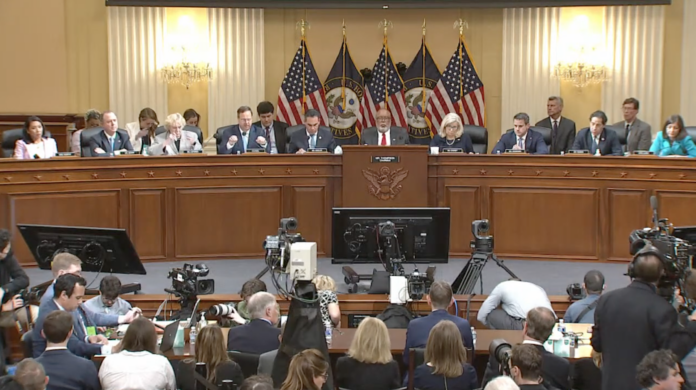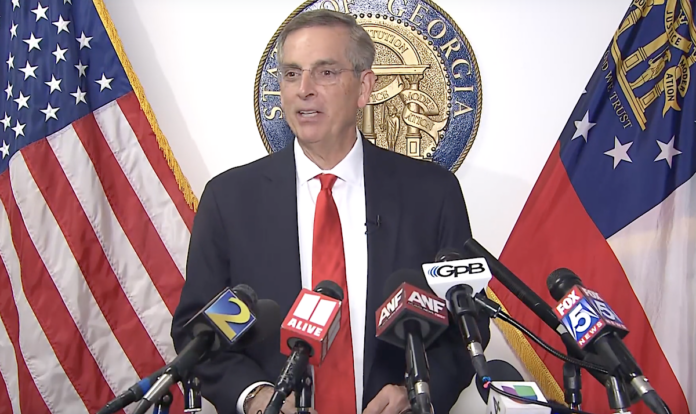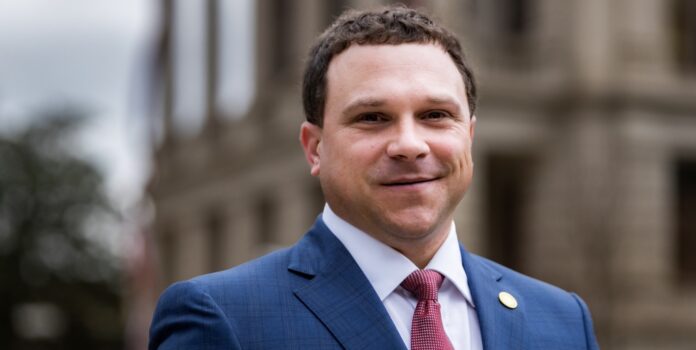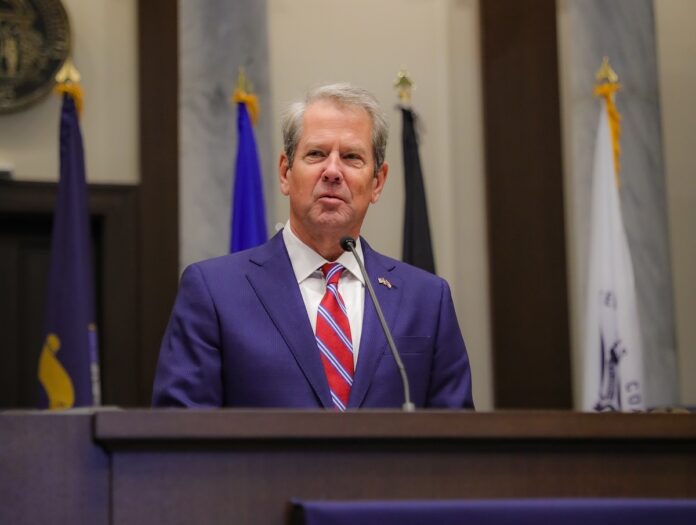WASHINGTON (States Newsroom) — Hours before his four-year term ended, President Joe Biden issued preemptive pardons early Monday to several officials and lawmakers who have been the target of incoming President-elect Donald Trump’s threats of retaliation as well as several members of his family.
Biden pardoned retired Gen. Mark Milley, Dr. Anthony Fauci, members and staff of the Select Committee to Investigate the January 6th Attack on the U.S. Capitol, and Capitol and D.C. Metropolitan Police officers who testified before the committee.
“I believe in the rule of law, and I am optimistic that the strength of our legal institutions will ultimately prevail over politics. But these are exceptional circumstances, and I cannot in good conscience do nothing. Baseless and politically motivated investigations wreak havoc on the lives, safety, and financial security of targeted individuals and their families,” Biden said in a statement Monday morning.
“Even when individuals have done nothing wrong — and in fact have done the right thing — and will ultimately be exonerated, the mere fact of being investigated or prosecuted can irreparably damage reputations and finances,” Biden said.
Just last month during an interview with NBC News’ “Meet the Press with Kristen Welker,” Trump said that Rep. Bennie Thompson and former Rep. Liz Cheney “lied” and “should go to jail.” The Mississippi Democrat and Wyoming Republican led the panel that investigated the Capitol attack on Jan. 6, 2021.
On that day a violent mob of Trump supporters marched to the Capitol — at Trump’s urging — and assaulted over 140 police officers and caused upwards of $2.8 million in damage to the Capitol, according to the Department of Justice.
Trump has promised to pardon those who were convicted on or pleaded guilty to charges related to the attack, describing them as “hostages,” “patriots” and “warriors.” Approximately 1,580 have been charged, according to the latest Department of Justice figures.
Former U.S. Capitol Police Sgt. Aquilino Gonell, who was among law enforcement officers to testify before the Jan. 6 committee, wrote on X Sunday that “The law and order dude is about to pardon those who assaulted the police. Collectively more than 40 rioters attacked me that day.”
RELATED Trump issues pardons for 1,500 defendants charged in Jan. 6 attack on Capitol
Milley was chair of the Joint Chiefs of Staff during Trump’s first administration and continued into Biden’s time in the Oval Office. The retired general is on record describing Trump as a “fascist” and a “wannabe dictator.”
Milley has been the target of Trump’s ire after he refused orders from Trump — among them a directive to send the military to quash protesters in D.C. during a wave of nationwide demonstrations after the murder by police of George Floyd in Minneapolis.
Trump has called for political retribution against Milley. The retired general has been receiving “a nonstop barrage of death threats” since his retirement, according to journalist Bob Woodward.
Fauci, who led the U.S. as the chief medical expert during the COVID-19 pandemic, has for years also been the target of threats and investigations from congressional Republicans.
Trump launched partisan attacks on Fauci and began name-calling the former director of the National Institute of Allergy and Infectious Diseases as early as 2020, describing him as “a total disaster.”
Pardons for the Biden family
Minutes before Trump swore his oath of office, the White House announced Biden’s preemptive pardons of his siblings and their spouses.
They include James B. Biden, Sara Jones Biden, Valerie Biden Owens, John T. Owens, and Francis W. Biden.
“My family has been subjected to unrelenting attacks and threats, motivated solely by a desire to hurt me—the worst kind of partisan politics. Unfortunately, I have no reason to believe these attacks will end,” Biden said in a statement.
Biden said the pardons “should not be mistaken as an acknowledgment that they engaged in any wrongdoing, nor should acceptance be misconstrued as an admission of guilt for any offense.”
Rep. James Comer, the Kentucky Republican who chairs the House Committee on Oversight and Accountability, said in a statement that the “preemptive pardons for the Biden Crime Family serve as a confession of their corruption as they sold out the American people to enrich themselves.”
Comer’s committee limped along for years on an investigation of Biden that the GOP-led panel said would lead to Biden’s impeachment, which did not occur.
Comer said his committee’s investigation “will be remembered as one of the most successful ever conducted by Congress.”












What if Dr. Martin Luther King Jr. were alive today?
He would be 96 years old and have lived through many difficult times. He’d probably have several great-grandchildren and have written a few best-sellers. But, if he wrote his “I Have a Dream” speech today, would it be the same?
The speech transcended the immediate concerns of racial inequality, speaking to a universal desire for justice, dignity, and equality. Although it was rooted in the African American struggle for civil rights, the themes Martin Luther King, Jr. explored extend far beyond race. His vision was not only about ending segregation or racial discrimination but about building a society where every person—regardless of their background, religion, or race—could live in peace and have equal access to opportunity.
Judge by character, not color
At the core of King’s dream was the belief that people should be judged by the content of their character, not the color of their skin. This powerful idea touches on a broader vision of human equality, calling for empathy, mutual respect, and shared humanity. King’s message of justice extended beyond race, focusing on values such as fairness, freedom, and peace that resonate with people of all backgrounds.
His speech also highlighted the importance of nonviolence and love in pursuing social change. King encouraged people to rise above hatred and resentment, emphasizing compassion and a shared sense of purpose. His dream was of a world where people coexisted peacefully and worked together to dismantle systems of oppression that divide them.
In essence, Martin Luther King Jr.’s speech was about more than African Americans’ rights; it was about the broader ideal of human dignity. It called on everyone to reflect on their role in creating a just and compassionate world. His dream is a powerful reminder that the struggle for equality is not just a racial issue but a human issue, where every individual must be recognized as equal and deserving of respect.
The world today
If Dr. King were alive today, how would he view the world? Would his speech change? Would he see the progress his words helped inspire? Would he adjust his message to reflect our current struggles?
A few months ago, I watched children of various ages, skin tones, and backgrounds playing together at a local park. As they climbed and slid down bouncy houses, it was clear that their differences—whether in skin color, size, or family structure—didn’t matter. They were united by the joy of play, effortlessly interacting and laughing together. The adults around them watched protectively but didn’t focus on their differences either. It was a moment that spoke volumes about the potential for unity when we move beyond surface-level distinctions.
Some people argue that the world hasn’t changed enough—that racism persists, and the country remains deeply divided. They say polarization is here to stay. But I believe they are mistaken. While there is still much work to do, there are undeniable signs of progress. The children I watched playing reminded me that we can unite, regardless of race, gender, or culture, to share common experiences and build lasting connections.
God didn’t create us to ignore color but rather to appreciate and celebrate it. Our differences in skin tones, hair types, and features are part of what makes the world beautiful. We discover shared interests, values, and dreams as we grow and learn more about each other. This connection across differences is part of the legacy that Dr. King envisioned.
What would he think today?
Dr. King would likely remind us that the struggle for unity and justice is not a quick fix but a marathon. He would encourage future generations to keep striving for a world where people are judged by the content of their character, not the color of their skin. His message of nonviolence, unity, and love remains as relevant and powerful as ever, inspiring new leaders, new movements, and fresh visions for a world that lives up to the ideals of equality and freedom.
Ultimately, Dr. King would say that the journey is far from over. As long as injustice persists, his dream—our dream—remains unfinished. It is up to all of us to continue the work, striving toward a more just and compassionate world where all people are treated with the dignity and respect they deserve.
As we reflect on Dr. King’s legacy, it is impossible to ignore the lasting impact of his vision and the progress society has made since his time. His dream for a better world—based on justice, equality, and nonviolence—continues to guide us. The journey he began is ongoing, and each of us has a role to play in carrying it forward.